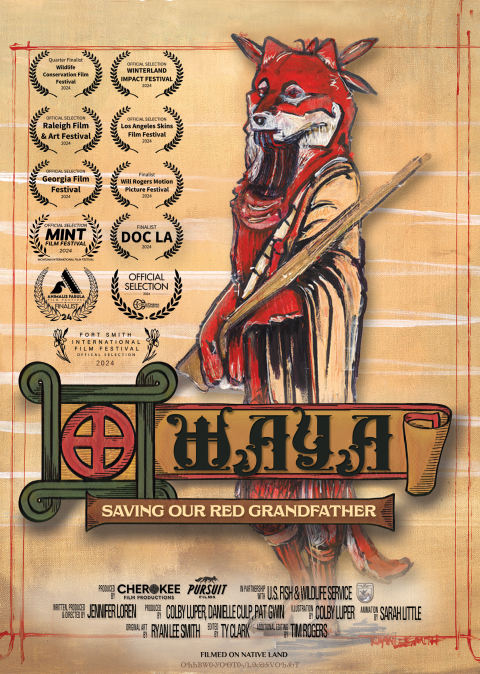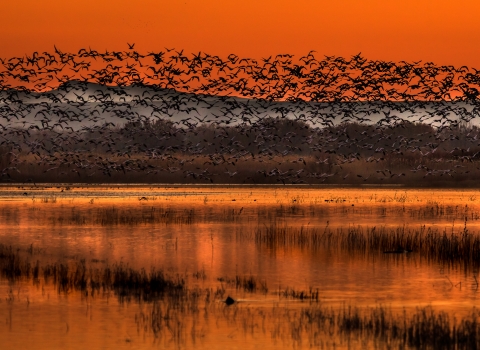Editor’s Note: The capitalization of Red Wolf acknowledges the importance of the species to the Cherokee Nation as a gesture of respect for the cultural importance the Red Wolf holds within the Cherokee Nation Tribe and other Tribes.
Significant and sacred. That is the Red Wolf – the Red Grandfather.
One of the most endangered animals on the planet, the work to recover this species is tremendous. But recovering a species begins with understanding how they arrived at their imperiled condition.
With Red Wolves, it’s no secret.
Federal bounty programs, predator removal programs, habitat fragmentation – all lead to the shrinking of the Red Wolf population. Until things were desperate. Desperate enough for the U.S. Fish and Wildlife Service to round up the last of the last. And build that “ark” population.
“Recovering a large carnivore, like the Red Wolf, comes with its fair share of challenges, but it’s a mission that unites a passionate and diverse coalition of conservation partners,” says Emily Weller, Red Wolf Recovery Program Coordinator for the U.S. Fish and Wildlife Service. “One of the greatest hurdles we face is shifting the deeply ingrained perception of wolves as ferocious, fearsome creatures—a narrative perpetuated by literature and film,” she added. Yet, among our strongest allies are Indigenous cultures that honor the Red Wolf, viewing it not with fear but with reverence.
Enter our Cherokee Nation Partners.
Destruction of the species and its habitat did not account for the cultural importance that Red Wolves had on Indigenous peoples. From Bud Squirrel, Cherokee Language Speaker and Wolf Clan Member, “The wolves are part of the Creator. You know he deemed them to be here as far as I’m concerned.”
“In thinking about the way that Cherokees relate to the natural world, we don’t place ourselves higher than the things around us,” says Dr. Candessa Tehee, Cherokee Nation National Treasure. “By and large, indigenous communities have sustainability at the forefront. So, when we start thinking about how can we rehabilitate the image of the wolf for the larger population, you're kind of almost asking for a change of heart.”
Dr. Tehee continued, “and in order for people to have a change of heart, I believe they have to have understanding. And if the understanding needs to be that nature is this complicated system. And when you make one change here, it has this waterfall of effects that are really unpredictable. So, you can’t pluck the wolf out of this system and expect there not to be a big waterfall of effects.”
Join with us in celebrating the Red Wolf and in honor of Native American Heritage Month, please enjoy this wonderful feature – a collaboration between the Cherokee Nation and the U.S. Fish and Wildlife Service.
Wado!
Waya – Saving Our Red Grandfather.
https://www.youtube.com/watch?v=bFQDqd6bD1Y
For more information on the Red Wolf Recovery Program, please visit our website:





